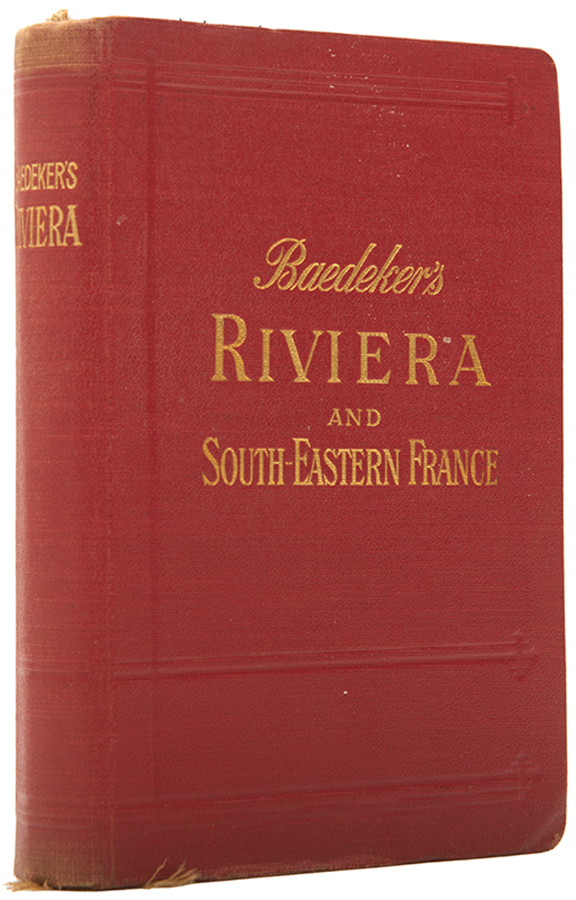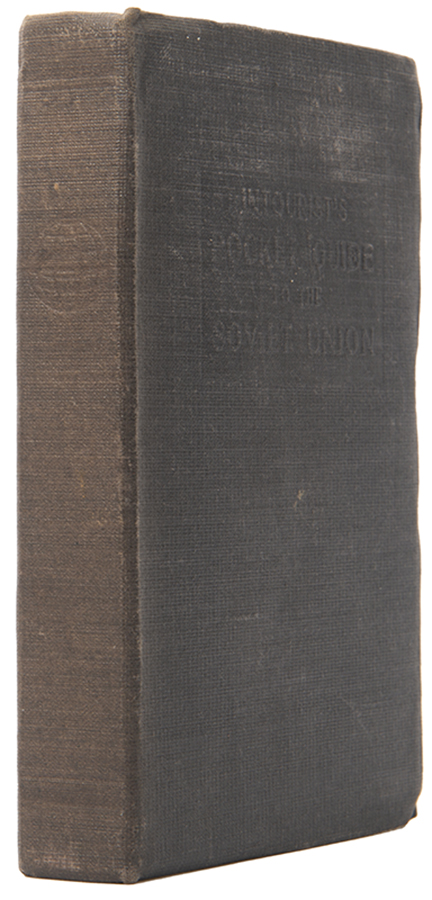BURNS, Robert.
Poems, chiefly in the Scottish dialect.
Edinburgh Printed for T. Cadell London and William Creech Edinburgh: 1793
- $2,360
Second edition enlarged; 2 vols; 12mo (18.5 x 11.5 cm); engraved portrait frontispiece after Alexander Nasmyth to vol. I, half-titles to each vol.; 20th-century straight grained dark-green morocco by Bayntun, panels framed in gilt within double-gilt filet border, arabesque cornerpieces, gilt spines in 6 compartments, all edges gilt, minor offsetting, very slight spotting to endpapers, otherwise internally very clean and fine; xi, [1], 2378, [1]; [4], 283, [1]pp. A smart, two-volume, lifetime edition of the poems of Rabbie Burns (1759-1796), finely bound in straight-grain morocco gilt by Bayntun. This edition marked the first appearance in print of a number of new poems, including: Lament for James, Earl of Glencairn, Wounded Hare, and the Fall of Fyers. Replying to his publisher, William Creech's request for new material in the spring of 1792, Burns wrote: 'I suppose, at a gross guess that I could add of new materials to your two volumes, about fifty pages. I would also correct and retrench a good deal. These said fifty pages you know are as much mine as the thumb-stall I have just now drawn on my finger which I unfortunately gashed in mending my pen. A few Books which I very much want, are all the recompense I crave, together with as many copies of this new edition of my own works as Friendship or Gratitude shall prompt me to present' (Letters II, p.114). ESTCT91542; Egerer 25; Lamont 22.
More from Shapero Rare Books
The Swiss Family Robinson.
8vo (20 x 14 cm); 8 colourplates including frontispiece by Charles Folkhard, in-text illustrations; light blue calf by Bayntun-Riviere, gilt spine in 6 compartments, contrasting red and green morocco lettering-pieces, all edges gilt, wear with minor loss to joints and spine ends, otherwise very good. A sweet, illustrated edition of Johann David Wyss' classic novel about a Swiss family shipwrecked in the East Indies en-route to Port Jackson, Australia, first published in 1812.The Form of Prayers. according to the custom of the German and Polish Jews; as read in their Synagogues, and used in their families.
[PRAYER BOOK]. LEVY, David (translator). Fourth revised edition. Six volumes, small 4to (23.5 x 15 cm); publishers embossed and gilt purple morocco with elaborate floral ornaments, raised bands and golden metal clasps bearing an engraving of a crown and the initials 'A.R.'; all edges gilt, navy ribbon bookmarks to each volume; parallel English and Hebrew text, occasional slight rubbing to covers. Set of Festival Prayers (Machzor) by one of the pioneers of Hebrew printing in London with incredible provenance of the De Rothschild family. The Fourth volume contains a prayer for Queen Victoria, Prince Albert and the Royal Family (p.92). This set was removed from the De Rothschild library at Exbury House, Hampshire and contains a note in French documenting its acquisition by Baron Lionel Nathan de Rothschild. Exbury House was acquired in 1919 by Major Lionel Nathan de Rothschild (1882-1942), the grandson of Baron Lionel Nathan de Rothschild (1808-1879). The set presumed to have belonged to Alfred Charles de Rothschild (1842-1918) a banker and diplomat, who had no children of his own and so his estate was passed to his nephew, Major Lionel Nathan de Rothschild. The volumes are divided according to the five most important holidays in the Jewish calendar: Vol. I. New Year (Rosh HaShanah); Vol. II. & III. Day of Atonement (Yom Kippur); Vol. IV. Feast of Tabernacles (Sukkot); Vol. V. Feast of Passover (Pesach); Vol. VI. Feast of Pentecost (Shavuot). David Levi (1742-1801), was an erudite Whitechapel cobbler and one of the most remarkable characters of 18th-century English Jewry. He was born in London and after failing to make a living as a shoemaker, went to the opposite extreme and became a hatter, meanwhile continuing his studies at the Great Synagogue of London. In 1783 he produced a succinct account of the 'Rites and Ceremonies of the Jews, in which their religious principles and tenets are explained'. From that date onwards, he was constantly engaged in literary work, in the intervals of trying to earn his livelihood. He produced grammars, dictionaries, apologetics, pamphlets and polemics. For years on end he was a one-man Anti-Defamation Committee, always prepared to fight with his quill whenever the good name of Jews or Judaism was impugned. In addition, he produced a series of liturgical and other translations, considered to be superior to A. Alexander's. Alexander, who was a well-known and established rival London-Jewish publisher, saw in Levi an imitator. This edition of the Machzor was published long after Levi's passing and his name is spelled Levy on the title by the publisher (it is spelled Levi in all previous editions).- $9,075
- $9,075
The Festival Prayers, according to the custom of the German and Polish Jews.
[PRAYER BOOK]. DE SOLA, D. A (translator). First edition. Small 8vo, 6 vols, publishers full calf elaborately tolled and gilt, raised bands, edges gilt, slight foxing to endpapers. Magnificent six volumes Ashkenazic Machzor of Festival Prayers, translated by Rev. David Aaron De Sola, minister of the Spanish and Portuguese Jews at the Bevis Marks congregation. This set was removed from the De Rothschild library at Exbury House, Hampshire and contains a note in French documenting its acquisition by Baron Lionel Nathan de Rothschild. Exbury House was acquired in 1919 by Major Lionel Nathan de Rothschild (1882-1942), the grandson of Baron Lionel Nathan de Rothschild (1808-1879). The volumes are divided according to the five most important holidays in the Jewish calendar: Vol. I - Passover; Vol. II - Shavuot; Vol. III - New Year (Rosh HaShanah); Vol. IV - Feast of Tabernacles (Sukkot); Vols V & VI - Day of Atonement (Yom Kippur). De Sola was the first minister to preach a sermon in English within the walls of Bevis Marks (all previous were delivered in Spanish or Portuguese).- $3,388
- $3,388
Alice’s Adventures in Wonderland.
CARROLL, Lewis [pseud. DODGSON, Charles Lutwidge]; TENNIEL, John (illustrator). Fifth edition, 'Twelfth Thousand'; 8vo (187 x 135 mm); half-title, 42 woodcut illustrations (including frontispiece), lacking advertisement leaf at rear, minor peripheral spotting, mostly to first and last two leaves, else very good; modern full red morocco gilt-panelled, spines with raised bands in six compartments, lettered in gilt in second and fourth compartments, gilt-stamped designs of playing cards and the March Hare in other compartments, a very handsome copy.- $1,815
- $1,815
Alice’s Adventures in Wonderland.
CARROLL, Lewis [pseud. DODGSON, Charles Lutwidge]; TENNIEL, John (illustrator). Fourth edition, third published, one of 500 copies only; 8vo (185 x 135 mm); half-title, 42 woodcut illustrations (including frontispiece), lacking advertisement leaf at rear, some minor spotting, mostly to half-title, else very good; modern full red morocco gilt-panelled, spines with raised bands in six compartments, lettered in gilt in second and fourth compartments, gilt-stamped designs of playing cards, the Mad Hatter and the March Hare in other compartments, a very handsome copy.- $1,936
- $1,936
Contributions to Analytical Psychology.
JUNG, Carl Gustav. First edition, first impression; 8vo (22 x 14.5 cm); ownership inscription in pen to front free endpaper recto, 20pp ads to rear; publisher's dark blue cloth, spine lettered in gilt, minor wear to extremities, very good; xi, [1], 410, [2], 20pp. The first edition of this collection of essays in English by the Swiss psychiatrist Carl Gustav Jung (1875-1961), marking his most recent contributions to analytical psychology including his essays On Psychical Energy, originally entitled The Theory of Libido, Spirit and Life, and Woman in Europe.- $424
- $424

France. Riviera and South-Eastern France and Corsica.
BAEDEKER, John. First edition, xxxvi, 480 pp.with 82 maps and plans,; publisher's red cloth gilt; a very good copy. First and only edition of this title in English. This volume covers a wide area including the Italian Riviera as well as the French. Issued c.1931.- $157
- $157
France. Paris and its environs with routes from London to Paris
BAEDEKER, Karl. Tenth edition. xxxix, 390pp. 32pp street appendix at rear. 11 maps and 31 plans, inner hinges slightly loose, spine slightly discoloured, previous owner's stamp on front endpaper; publisher's red cloth gilt, one ribbon bookmark; overall a very good copy Includes Versailles and Fontainebleau. Issued c.1891. Hinrichsen E104.- $109
- $109

Pocket Guide to the Soviet Union.
[INTOURIST] First edition. Small 8vo, (15 x 10 cm), 706pp, 2 (of 4) folding coloured maps, (lacks maps of Moscow and Leningrad usually inserted loose in a booklet at rear), adverts at rear, slight spotting throughout, previious owner's pencilling inside ; publisher's original black cloth, slightly marked and worn; a very good firm copy. A good example of this interesting Communist guide. Intourist was the Soviet agency established in 1929 to promote the USSR's image overseas. Stalin's Russia wasn't a closed country by any means, although many western visitors arrived as part of delegations sent by trade unions and other sympathetic groups. This guide nearly always lacks the two maps of Moscow and Leningrad inserted loose as a booklet with printed wrappers at rear. The two other maps bound in the book are of the European USSR and the Asiatic USSR.- $182
- $182
Poems, chiefly in the Scottish dialect.: https://rarebookinsider.com/rare-books/poems-chiefly-in-the-scottish-dialect/